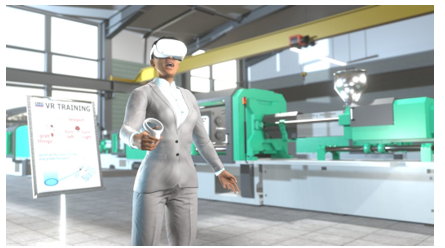
Cultivating Expertise: Training the Next Generation of Plastics Engineers
Shaping the Future: Empowering Tomorrow’s Innovators
The plastics industry is a cornerstone of modern manufacturing, driving innovations spanning numerous sectors such as automotive, healthcare, construction, and consumer goods. As the industry evolves with technological advances and sustainability practices, the demand for skilled plastics engineers adept in these new technologies and methods is surging. This necessity highlights the crucial role of workforce development in shaping the next generation of plastics engineers.
Bridging the Skills Gap
As the plastics industry integrates more advanced technologies such as 3D printing, bioplastics, and recycling innovations, a growing skills gap needs to be addressed. Traditional educational programs may not fully equip students with the necessary skills to navigate the complexities of modern plastics engineering. This gap not only challenges the industry to maintain pace with innovation but also to adopt sustainable practices that are becoming increasingly crucial.
Collaborative Educational Efforts
One effective approach to workforce development in the plastics industry is fostering strong partnerships between academic institutions and industry leaders. These collaborations can lead to the development of a curriculum that aligns closely with the industry’s current needs, providing students with hands-on experience and exposure to cutting-edge technologies and processes. For instance, internship and co-op programs allow students to work alongside experienced professionals, gaining valuable insights and practical skills that are not fully replicable in a classroom setting.
Emphasizing Sustainability and Innovation
Training programs must also emphasize the importance of sustainability. As environmental concerns become more pressing, the industry is under scrutiny to develop eco-friendly materials and processes. The next generation of plastics engineers must have knowledge and skills related to sustainable practices, such as developing new materials that are easier to recycle, implementing waste reduction techniques, and optimizing energy consumption during production.
Utilizing Advanced Technology in Education
Using advanced technology in training can significantly enhance learning experiences and outcomes. Simulation-based learning, virtual reality (VR), and augmented reality (AR) can provide students with immersive often impossible experiences in traditional learning environments. For example, VR can simulate the plastics manufacturing processes in a detailed and interactive manner, allowing students to experiment with different scenarios and instantly see the outcomes of their actions without the material costs or risks associated with real-world testing.

For more information, you can check Kruse VR Training.
Continuous Learning and Professional Development
Workforce development does not end at graduation. The field of plastics engineering is continually evolving, necessitating ongoing professional development. Providing opportunities for continuous learning through workshops, seminars, and online courses can help current professionals stay updated with the latest developments. Encouraging certifications in specialized areas of plastics processing can also promote a higher standard of expertise and professionalism in the field.
Conclusion
Training the next generation of plastics engineers is a multifaceted endeavor that requires collaboration, innovation, and a forward-thinking approach to education and professional development. By bridging the skills gap, emphasizing sustainability, leveraging advanced technologies in education, and fostering an environment of continuous learning, the industry can ensure that it remains at the forefront of manufacturing excellence. These efforts not only benefit the plastics industry but also contribute to the broader goal of sustainable development and technological advancement worldwide.
Related articles and links:
Bridging the Manufacturing and Construction Skills Gap in the Age of Automation | www.deloitte.com
How to Close the Skills Gap Widened by COVID-19 | www.emeritus.org
Closing the manufacturing skills gap with generative AI | AWS for Industries | www.amazon.com
Educating the Next Generation of Plastics Professionals | Plastics Technology | www.ptonline.com
